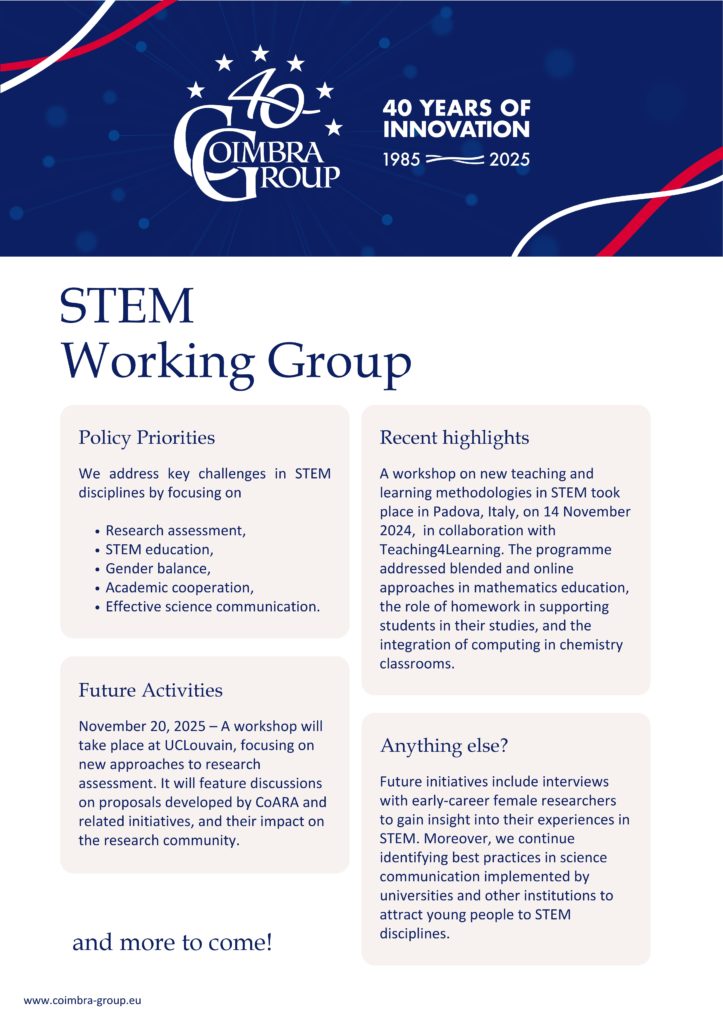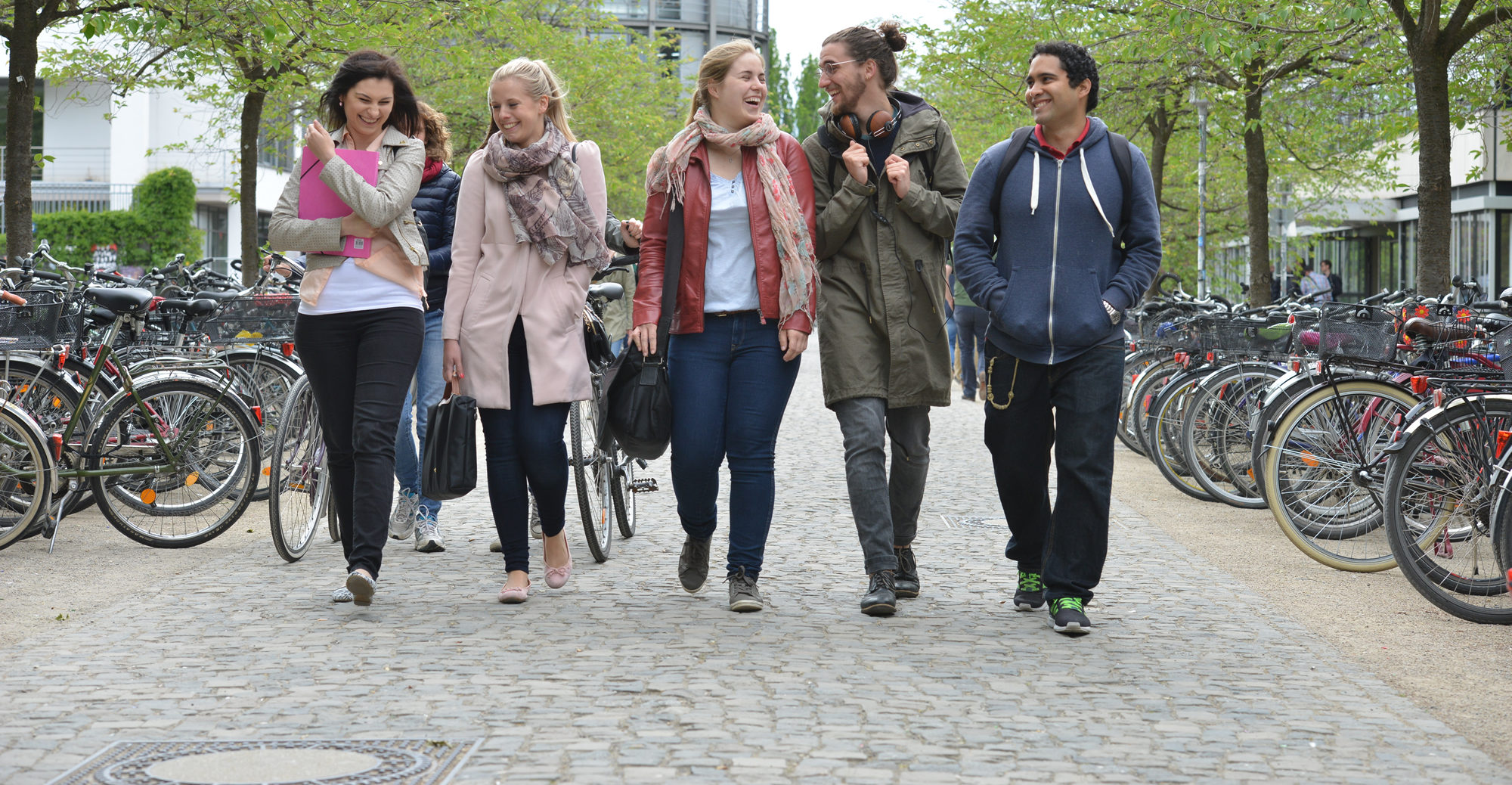Science, Technology, Engineering and Mathematics
Working Group
Chair: Francesco De Anna

Francesco De Anna is a lecturer of the Institute of Mathematics at the University of Würzburg. He completed his PhD at the University of Bordeaux in 2016, working under the guidance of Marius Paicu. His doctoral research centered around the dynamics of complex fluids. Subsequently, he spent two years at Penn State University, during which time he held the position of Chowla Research Assistant Professor. His focus there revolved around collaborative work with Chun Liu, delving into variational theories related to liquid crystals. In 2018, Francesco De Anna moved to Würzburg, embarking on an independent and innovative research path. His primary research revolves around the derivation and analysis of nonlinear partial differential equations. These equations serve as foundational models for capturing the intricate dynamics of certain anisotropic fluids. The underlying analysis draws upon a diverse spectrum of methodologies, notably techniques from functional analysis, harmonic analysis and Fourier analysis.
Vice-Chair: Giulia Marina Licini

Giulia Licini is professor of Organic Chemistry at the University of Padova (Italy). She got her PhD in Chemical Sciences at the University of Padova. After one-year postdoc at the Colorado State University, Fort Collins, CO, USA, she moved back to the University of Padova where she is now full professor. At the University of Padova she has been part of several committees related to student tutoring, PhD studies, internationalization and teaching assessment. She is also active in the frame of the Italian Chemical Society activities. She has been chair/co-chair of international conferences and schools.
Her main research activities are related to homogeneous catalysis and molecular recognition for biomimetic processes and sustainable biomass valorization. She has been/is supervisor of PhD and master students, also in cotutelle. She is co-author of more than 100 publications in peer-reviewed journals and has been invited as speaker at national and international conferences and schools. She has been involved in several national/European projects also with industrial partners.
Working Group Focus
Science, Technology, Engineering and Mathematics (in this established acronym-friendly order) have benefited, over the centuries and still today, from fundamental contributions of scholars from universities which are now members of the Coimbra Group. STEM remains a major factor of modernization and progress for society at large. As research-intensive universities, the members of the Coimbra Group are firmly committed to and constantly develop and expand their research and education in STEM, also including societal outreach related to these fields.
Priorities for 2025-2026
- Research assessment in STEM disciplines: The new principles promoted by the Coalition for Advancing Research Assessment (CoARA), of which CG and several of its members are members, is likely to transform the way research will be evaluated and funded in the coming years. These changes will influence the future recruitments and promotions of researchers and academics in the EU. It is important to share the good practices in STEM disciplines that are and will be implemented by CG universities to increase the quality of research, to promote scientific integrity and engagement with society. This reform will change the way quantitative indicators will be considered, including the use of h-index, citations and journal impact factor. We aim to gather information and host in UCLouvain on 20 November 2025 a one-day conference where experts will discuss the key innovations and future trends in research assessment.
- New teaching & learning methodologies in STEM: STEM disciplines suffer from of a low number of new students, as well as a significant drop-out. Innovation and new teaching methodologies in STEM (active learning) can help counter this trend by facilitating students’ learning experiences. We want to establish and discuss which innovative and active learning activities are carried out at local level of each CG Universities in STEM disciplines. Additionally, significant attention will be given to exploring the integration of teaching methodologies with the advent of artificial intelligence, examining both the positive and negative impacts on students. Following the Fall 2024 workshop in Padova, we plan to hold another open discussion meeting about active teaching methods in the Spring 2026.
- Women in STEM: There is a chronically low presence of women in STEM fields at all levels, in particular at PhD, post-docs and academic level. We will carry out an analysis (on-line surveys, interviews) at Master, PhD, post-docs levels to gain information on which are the expectations and main difficulties of early-stage female-researchers in STEM fields. There are possibilities for carrying out this project also at inter-WG level (Doctoral Studies and Equality and Diversity WGs). Furthermore, we want to collect testimonials from STEM female-researchers as positive and successful models (interviews).
- Good practices in science communication: Effective initiatives to encourage and attract young people and in particular girls to STEM fields are of fundamental importance. We want to establish which activities are carried out in the STEM WG Universities to facilitate the entry in STEM studies of young people (national and local projects), paying particular attention to actions for gender balance. Eventually, the analysis will be expanded to all CG Universities.
Recent highlights since June 2024
- New teaching & learning methodologies in STEM: On 14 November 2024, the STEM WG held a one-day in-person workshop at the University of Padova focused on teaching methodologies, in collaboration with the Teaching4Learning project, and with support from the Coimbra Group WGs Funding Scheme.
Ongoing / forthcoming activities 2025-2026
- Research assessment in STEM disciplines: A workshop is planned on 20 November 2025 at UCLouvain to explore the implications of emerging approaches to research assessment. The event will feature expert discussions on proposals developed by CoARA and related initiatives.
- New teaching & learning methodologies in STEM: During 2025, the STEM Working Group plans to continue the discussion with online contributions from the partners related to active learning in the different University and STEM fields, also, in collaboration with a programme at the University of Padova dedicated to teaching innovation.
- Activities at the Organisational Stage:
- Women in STEM: analysis (on-line surveys, interviews) at Master, PhD, post-docs levels to gain information on which are the expectations and main difficulties of early-stage female-researchers in STEM fields. Preparation of the survey, distribution of the questionnaires, data analysis, preparation of the report.
- Promoting academic cooperation in STEM programmes: organization of a one day-workshop on academic cooperation in STEM fields and in the different realities of the CG Universities (back-to-back with a STEM WG meeting).
Contact person at the CG Office: Rúben Castro (castro@coimbra-group.eu)



